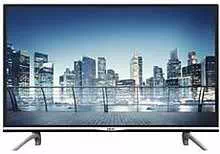Troubleshooting Akai AKLT32-80DF2SM

Frequently Asked Questions about the Akai AKLT32-80DF2SM
- What should I do if my Akai AKLT32-80DF2SM won't turn on or turns off by itself?
- How can I connect my Akai AKLT32-80DF2SM to the Internet?
- My televisor Akai AKLT32-80DF2SM has no signal. What should I do?
- How do I connect external devices, such as game consoles or Blu-ray players, to the Akai AKLT32-80DF2SM?
- How do I connect a hard drive, external memory, or USB drive to the Akai AKLT32-80DF2SM?
- How can I mirror my phone or computer screen on the Akai AKLT32-80DF2SM?
- User questions and answers
What should I do if my Akai AKLT32-80DF2SM won't turn on or turns off by itself?
Check timer or energy-saving settings: Some TVs have energy-saving or timer settings that might cause them to turn off automatically. Check and adjust these settings if necessary on your Akai AKLT32-80DF2SM.
Ensure all cables are properly connected, especially if you are using external devices like game consoles or sound systems.
If the Akai AKLT32-80DF2SM turns off after being on for a while, it could be an overheating issue. Ensure there is enough ventilation around the TV.
Make sure the Akai AKLT32-80DF2SM is correctly plugged in and the outlet is working. You can test by plugging another device into the same outlet to check.
How can I connect my Akai AKLT32-80DF2SM to the Internet?
This TV model cannot connect to the internet by itself; to enjoy streaming content, you need to connect a set-top box, Chromecast, Fire Stick, Xiaomi TV, or any other HDMI dongle with internet capability.
My televisor Akai AKLT32-80DF2SM has no signal. What should I do?
If your Akai AKLT32-80DF2SM does not have a signal, there are several steps you can follow to try to solve the problem:
Check cable connections: Make sure all cables, including the antenna, coaxial cable, or any other input cable, are properly connected to both the TV and the signal source (such as a cable or satellite box).
Verify the input source: Ensure that the AKLT32-80DF2SM is set to the correct input source (HDMI, DVB-T, cable, etc.). You can switch between different sources using the remote control.
Check the antenna or cable connection: If you are using an antenna, ensure it is correctly oriented and there are no obstacles blocking the signal reception. If you have a cable service, check for any service interruptions in your area.
Rescan channels: In the settings menu of your Akai AKLT32-80DF2SM, look for the option to tune or search for channels. This may be necessary if the channel setup has changed or if you have moved the antenna.
Check on another TV: If you have another TV at home, try to see if it also has signal issues. This can help you determine whether the problem is with the specific TV or the signal source in general.
How do I connect external devices, such as game consoles or Blu-ray players, to the Akai AKLT32-80DF2SM?
The Akai AKLT32-80DF2SM has de 2 input port where you can connect a Blu-ray player, game console, set-top box, Chromecast, Fire Stick, Xiaomi TV, or any other HDMI device.
HDMI ports are usually located on the left side or at the back of the Akai AKLT32-80DF2SM. Simply connect one end of the HDMI cable to the TV and the other end to the device you want to connect. Then, using the AKLT32-80DF2SM remote control, select the video input source. Depending on the HDMI version, the TV may automatically switch to the correct input source when the device is turned on.
How do I connect a hard drive, external memory, or USB drive to the Akai AKLT32-80DF2SM?
The Akai AKLT32-80DF2SM has 2 input port where you can connect a hard drive, external memory, or USB drive.
Like the HDMI ports, the USB ports are usually located on the left side or at the back of the Akai AKLT32-80DF2SM. If it is a hard drive, you will need to connect it using a USB cable, and if it is external memory or a USB drive, you can connect it directly to the TV's USB-A port.
How can I mirror my phone or computer screen on the Akai AKLT32-80DF2SM?
Since the Akai AKLT32-80DF2SM does not have wireless connectivity, to send the image signal from a mobile phone, tablet, or computer, you need to connect a device such as Chromecast, FireStick, Xiaomi Mi TV Stick, or any other dongle with Android TV or Roku TV to mirror the screen via Wi-Fi. Consult the following tutorial for everything you need to know about screen mirroring on the Akai AKLT32-80DF2SM: Screen sharing on TV (Screen mirroring) .
If you cannot or do not wish to use a wireless connection to mirror the screen with the Akai AKLT32-80DF2SM, you can perform "mirroring" (mirror mode) or send the image to the TV using an HDMI cable. For this, you will need to connect the cable to one of the HDMI ports of the AKLT32-80DF2SM and to the computer or mobile phone using a USB to HDMI adapter.